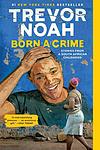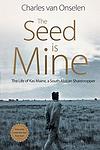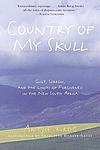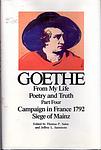The Greatest Lebanese, South African "Nonfiction" Books Since 1980
Click to learn how this list is calculated.
This list represents a comprehensive and trusted collection of the greatest books. Developed through a specialized algorithm, it brings together 300 'best of' book lists to form a definitive guide to the world's most acclaimed books. For those interested in how these books are chosen, additional details can be found on the rankings page.
Genres
Countries
Date Range
Reading Statistics
Click the button below to see how many of these books you've read!
Download
If you're interested in downloading this list as a CSV file for use in a spreadsheet application, you can easily do so by clicking the button below. Please note that to ensure a manageable file size and faster download, the CSV will include details for only the first 500 books.
Download-
1. Long Walk To Freedom by Nelson Mandela
"Long Walk to Freedom" is a powerful autobiography that chronicles the extraordinary life of Nelson Mandela. From his humble beginnings in a rural village to becoming the first black president of South Africa, Mandela's journey is one of resilience, determination, and unwavering commitment to justice and equality. Through his personal experiences, he provides a vivid account of the struggle against apartheid, his 27 years of imprisonment, and the eventual triumph of democracy. This book serves as an inspiring testament to Mandela's unwavering spirit and his lifelong fight for freedom and human rights.
-
2. Kaffir Boy by Mark Mathabane
This autobiography tells the story of a young boy growing up in apartheid-era South Africa. Despite enduring extreme poverty, brutal police raids, and constant racial discrimination, the protagonist manages to escape his harsh reality through education and tennis. His determination and resilience eventually lead him to receive a scholarship to an American university, providing him a chance to escape the oppressive system of apartheid.
-
3. Beirut Fragments by Jean Said Makdisi
"Beirut Fragments" is a poignant memoir that delves into the personal experiences of a woman living through the Lebanese Civil War. The narrative captures the daily struggles, fears, and the resilience of civilians caught in the crossfire of a fragmented city. Through her eyes, readers witness the transformation of Beirut from a vibrant cultural hub to a landscape scarred by violence and destruction. The author's reflections offer a deeply human perspective on the impact of war, the loss of loved ones, and the enduring hope for peace amidst chaos. Her story is a testament to the strength of the human spirit in the face of relentless adversity.
-
4. Born A Crime by Trevor Noah
"Born A Crime" is a captivating memoir that chronicles the life of Trevor Noah, a South African comedian and television host. Set during the apartheid era, the book explores Noah's experiences as a mixed-race child growing up in a society where interracial relationships were illegal. With humor and insight, Noah recounts his struggles with identity, poverty, and racism, while also highlighting the resilience and strength of his mother who played a pivotal role in his life. This thought-provoking memoir offers a compelling and personal perspective on race, family, and the power of laughter in the face of adversity.
-
5. The Seed Is Mine by Charles Van Onselen
"The Seed Is Mine" is a historical non-fiction book that explores the life of a black South African named Klaas, who lived through the tumultuous years of apartheid. Through extensive research and interviews, the author delves into Klaas' personal experiences, struggles, and aspirations, shedding light on the complex dynamics of race, class, and power during this period. The book offers a poignant and intimate portrayal of one man's fight for dignity and justice amidst a system designed to suppress and oppress.
-
6. Country Of My Skull by Antjie Krog
"Country Of My Skull" is a powerful and deeply personal account of the author's experiences as a journalist covering the Truth and Reconciliation Commission in post-apartheid South Africa. Through her vivid and introspective narrative, the author explores the complexities of forgiveness, justice, and the collective healing process of a nation grappling with its painful past. This thought-provoking book offers a unique perspective on the complexities of reconciliation and the enduring impact of trauma on individuals and societies.
-
7. Boyhood: Scenes from provincial life by J M Coetzee
"Boyhood: Scenes from Provincial Life" is a semi-autobiographical novel that explores the author's childhood in South Africa during the apartheid era. The narrative delves into the complexities of family dynamics, racial tension, and the struggle of a young boy trying to understand his place in a divided society. The protagonist grapples with his identity, torn between his Afrikaner heritage and his English schooling, while also navigating the trials of adolescence. The book offers a poignant and often painful reflection on the formative years of a boy growing up in a fraught and turbulent time.
-
8. The Vanished Imam by Fouad Ajami
"The Vanished Imam" delves into the life and legacy of Musa al Sadr, a charismatic Lebanese Shia cleric who mysteriously disappeared in 1978. The book explores his influential role in the transformation of the Shia community in Lebanon from a marginalized group to a significant political force. Through a detailed narrative, the author examines al Sadr's efforts to empower the Shia, his establishment of the Amal Movement, and his disappearance during a trip to Libya, which remains a contentious issue in the Middle East. The book also provides a broader analysis of the social and political dynamics of Lebanon and the region, highlighting the complexities of identity and power.
-
9. The Black Swan by Nassim Nicholas Taleb
The book delves into the profound impact of highly improbable and unpredictable events that have massive consequences, which the author terms as "Black Swans." It challenges our understanding of the world by critiquing how we rely on simplistic models to predict the future, often overlooking the possibility of such rare events that can reshape our reality. Through a blend of philosophical insights and practical wisdom, the narrative encourages readers to embrace uncertainty and unpredictability, arguing that our ability to deal with Black Swans is more important than trying to predict them. The author's exploration spans across various domains, including finance, science, and history, illustrating how Black Swans have shaped the course of human events and urging a reevaluation of how we think about risk and reward in an inherently unpredictable world.
Reading Statistics
Click the button below to see how many of these books you've read!
Download
If you're interested in downloading this list as a CSV file for use in a spreadsheet application, you can easily do so by clicking the button below. Please note that to ensure a manageable file size and faster download, the CSV will include details for only the first 500 books.
Download







